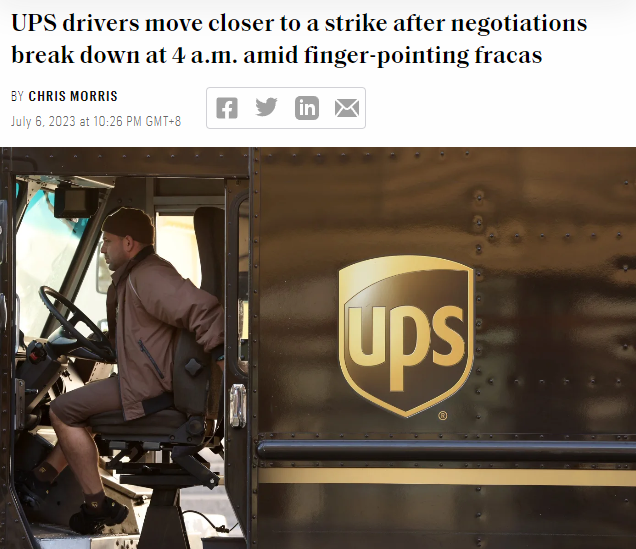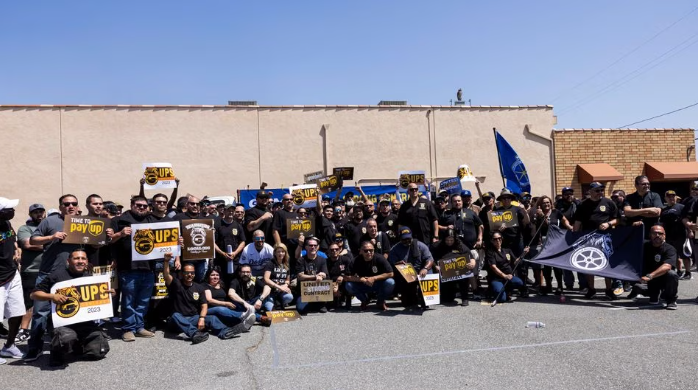As contract negotiations between UPS and the Teamsters union, which represents the company’s truck drivers, break down, a major strike may erupt in August. The threat of a significant strike is becoming increasingly imminent.

The negotiations between UPS and Teamsters aim to reach an agreement on a labor contract, but reportedly, both parties have been unable to reach a consensus on matters such as compensation, wages, working conditions, and other key issues. Despite efforts by both sides to find a compromise, negotiations seem to have reached a stalemate. The latest news indicates that the breakdown in negotiations between the truck drivers’ union and the company has brought UPS closer to a driver strike.
Earlier in the day, the union stated that UPS had put forth a proposal, which was unanimously rejected, and the company had “walked away from the negotiating table.”
Sean O’Brien, the General Manager of the Teamsters union, said, “UPS has a choice to make, but they have clearly chosen the wrong path.” The Teamsters union represents approximately 340,000 full-time and part-time American drivers, package handlers, and loaders.
If the current negotiations fail and a new labor contract is not reached, a strike could occur in August. This would severely impact UPS’s business and logistics transportation, as UPS is one of the largest express and logistics companies in the United States, handling millions of parcels and shipments daily. Although there is still time for final negotiations, significant differences between both sides currently appear to be increasing the likelihood of a strike. If a strike occurs, it will cause significant disruptions to UPS’s operations and customer supply chains and have widespread economic consequences.
Both parties still have an opportunity to restart negotiations and reach an agreement before August to avoid a strike. However, if disagreements cannot be resolved, UPS and the Teamsters will need to address the potential impacts of a strike on their business and reputation and explore alternative solutions to mitigate these effects as much as possible.

According to Reuters on July 5, the Teamsters union said on Wednesday that United Parcel Service (UPS) had “walked away” from negotiations on a new contract, while the transportation giant denied the claim and accused the union of halting the talks.
Both sides exchanged accusations in their early morning statements as they tried to reach an agreement to avoid a strike when the current contract, covering about 340,000 workers, expires at the end of this month.
If negotiations collapse, UPS workers have been granted the authorization to strike. Such a strike would be the first for UPS workers since 1997, when a strike lasted 15 days, causing the company $850 million in losses and prompting some customers to switch to competitors.
Both union and company officials have expressed hopes to reach a final agreement to avoid a strike, as millions of daily delivered packages would be at risk.
If a strike occurs, UPS may struggle to regain the lost business volume due to weak e-commerce demand faced by both UPS and competitor FedEx, according to Satish Jindel, president of logistics consulting firm ShipMatrix.
“UPS currently processes about 20 million packages daily, while FedEx handles 12 million. So, there’s room for them to take on an additional 3 to 4 million packages without breaking a sweat. And they’re more than happy to maintain that level,” Jindel said.

